Feature
Responsible for setup, strategy, and performance: Engineers are a vital cog in the Formula 2 machine
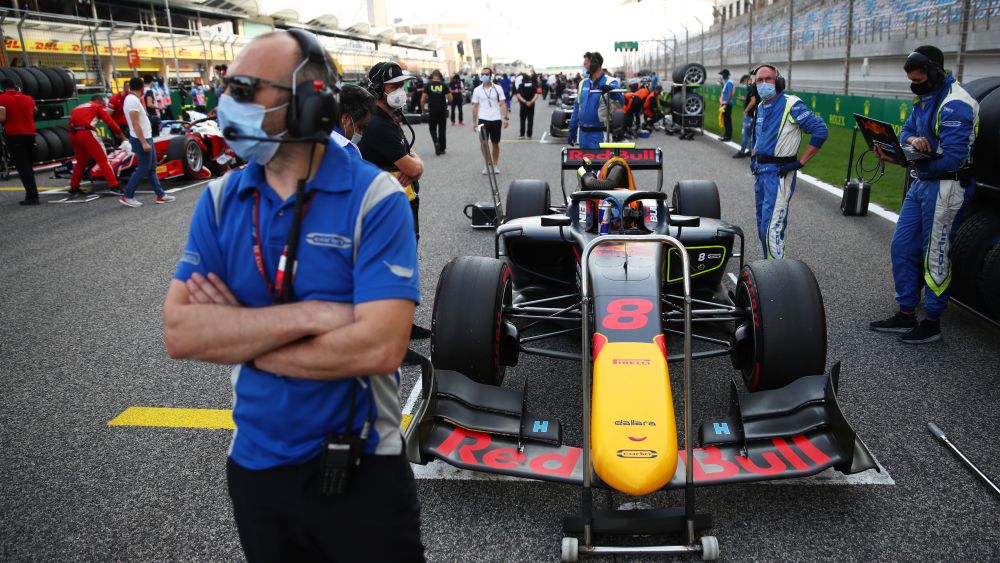
We’re eighteen laps into the Sprint Race at Silverstone in 2020 when Jehan Daruvala asks for an update on the race from his Carlin engineer, Stuart King. The response is simple: “just f^^^^^^ drive fast!” and the moment is quickly clipped up and has now been seen on social media over 100,000 times.
What hadn’t been heard was the lengthy conversation that had led to King’s comment. That’s a pretty apt metaphor for the role of an engineer in general. So much of what they do goes unseen. Yet, there are very few people in the garage as influential.
Unlike in F1, where teams have engineers and mechanics who specialise in specific areas, teams in F2 are limited on the number of staff they can have working on the cars. At Carlin, that list includes the Team Principal, Team Manager, Technical Director, Technical Chief Mechanic, Data Engineer and four mechanics.
In addition to this, King is one of four engineers in the team. He has spent the past two seasons working with Daruvala. He was Lando Norris’ engineer in 2018, and from the start of 2022, is working with Liam Lawson.
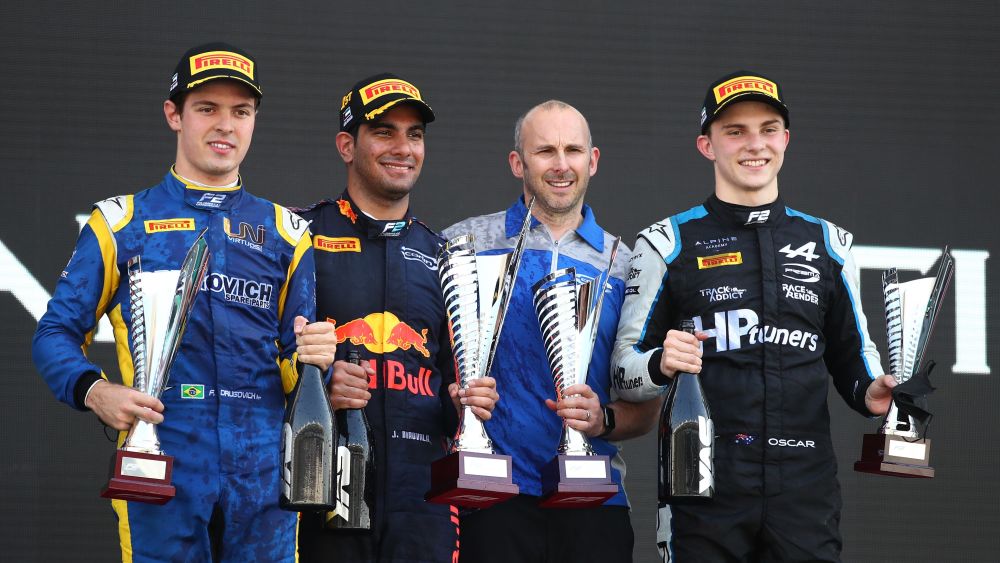
We make sure that the car is running mechanically optimally,” King begins to explain. “Here’s one example: reducing friction in the car to make sure that it rolls as fast as possible.
“It also includes the setup, the strategy, making sure that the car meets scrutineering, and even the lines that the drivers are racing on, as well as much more. Unlike in F1, we have to try and do it all.”
It's an extensive and vital role, one that a lot of people won’t realise doesn’t actually involve touching the car, at least not often. And if King does have to get his hands dirty, then it’s because something has gone wrong, an ‘all hands-on deck’ scenario that arises only when there is a problem and a short space of time to solve it.
And even then, the mechanics aren’t best pleased with the engineers getting involved.
“We leave them to that as it’s what they are used to doing, day in, day out,” smiles King. “We'll do the track walk with the drivers and make sure that we go through our plan for Free Practice and Qualifying, and also go through a detailed plan of how they are going to drive the races and the strategy we will be going with.
READ MORE: ‘I love the guy!’ – Nissany says him and Iwasa are giving DAMS ‘two amazing perspectives’
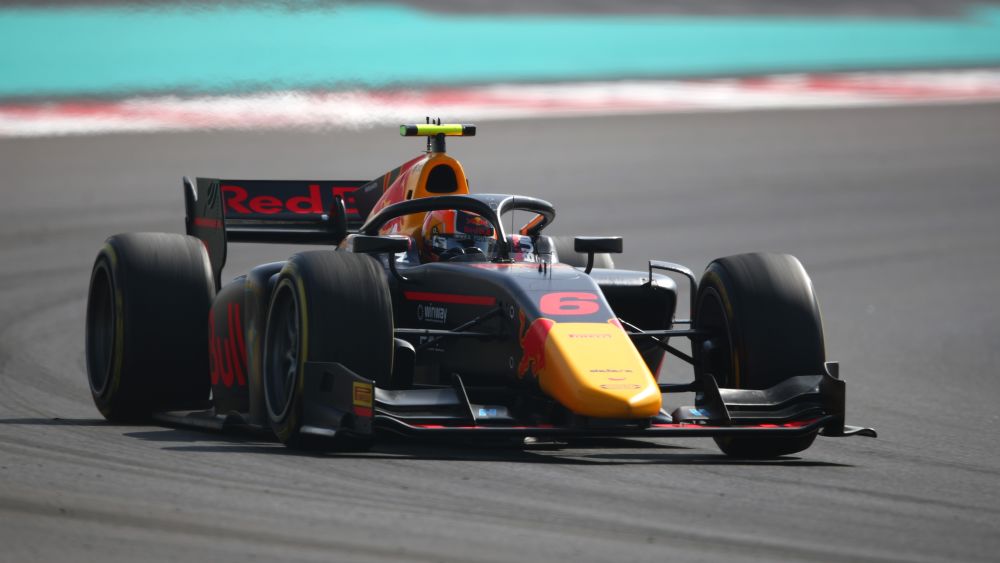
“That will change and evolve over the weekend, but we will go in with one plan and then modify it, rather than going in completely blind or fully fluid.”
The pathway to becoming an engineer differs greatly from person to person. Some have a rich CV full of qualifications, including undergraduate degrees and PHDs, while others have built up a vast array of on-the-job experience by working up the levels.
For King, it was the latter. As well as being a full-time time engineer since 2003, King has previously raced, performing the roles of driver, mechanic and data engineer on his car, a combination that’s given him a unique understanding of his current job.
It helps quite a lot if you have driven yourself. Even though it was a long time ago, you can understand a bit better what is actually involved.
“I raced up to Class B Formula 3 in the UK and I did everything,” he recalls. “I think at this level, it helps quite a lot if you have driven yourself. Even though it was a long time ago, you can understand a bit better what is actually involved.
“When you’re just looking at lines on the screen, sometimes you want to say to the driver, 'well, just go a bit faster, or just break with a little bit less pressure,’ because it looks really simple, but you’re quickly reminded that it isn’t. That’s the case even if you have raced yourself, so if you’ve never raced, then I would imagine it’s quite hard to fully appreciate just how difficult it is to do these things at the speed these guys are going.”
READ MORE: ‘I was scratching the wall’ – Hauger was pushing to the limit in the Feature Race
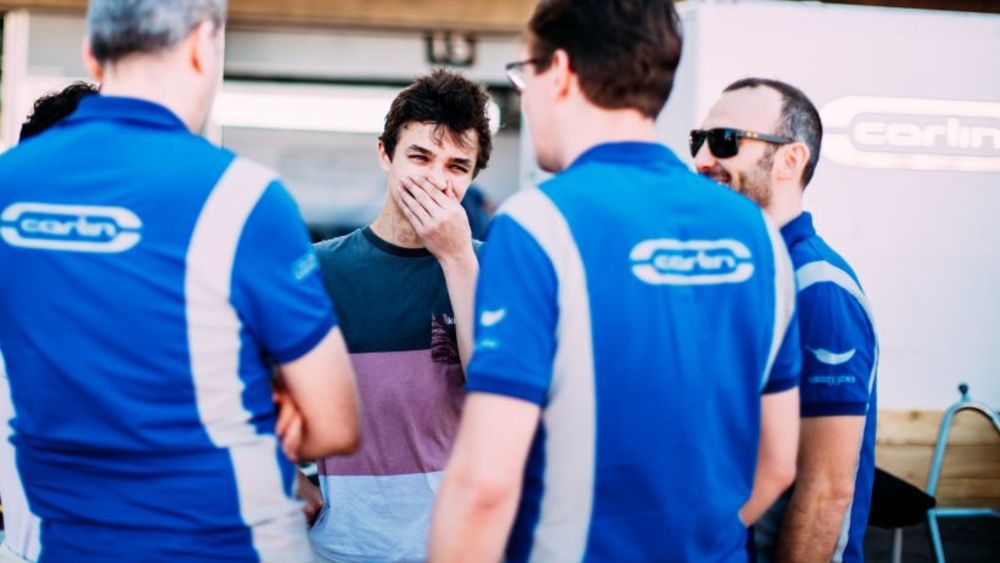
The role isn’t for the faint of heart. It’s full-on and high-pressure, and you’re doing it all in the noisiest of environments for long hours at a time.
Speaking in the Formula 2 paddock, surrounded by the thunder of engines and some questionable music choices from each team, the garages are a hub of activity. The fact that King’s even had time for this conversation is a surprising.
“When you work in motorsport, you kind of get used to it all,” he continues. “At my previous team, we used to take on interns who were not used to doing it. They were young, and by the end of the first day, they were finished. Your body has to adjust.
“It is stressful, and when it’s going badly, it is really, really stressful. Those are the times when you need to be really strong in yourself and keep focused so that you can try and get yourself out of the hole, rather than panicking and digging deeper. That’s what I think separates a lot of teams and engineers.”
One aspect of the job that differentiates engineers from the other positions within the team is their relationship with the drivers. It’s not so much a benefit but a necessity. It’s expected that the team and drivers will all get on, but the engineers are required to have a much closer relationship.
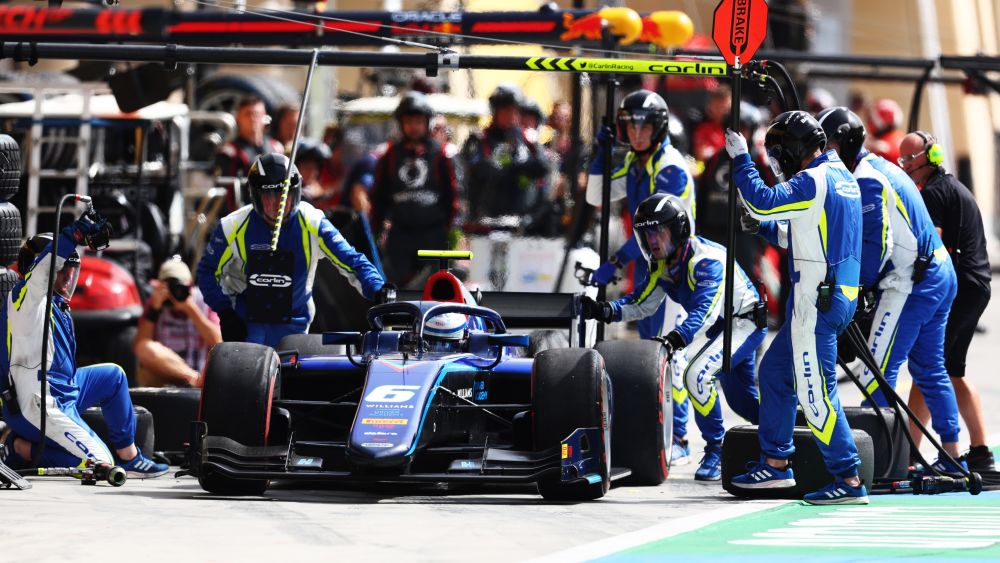
“They have to 100% trust what you are doing and if you lose that, you are done,” he continues. How that trust is built differs from driver to driver and engineer to engineer, but ultimately at this level of racing, there’s an expectation that both parties know what they are doing.
Given that junior drivers tend to move from Championship to Championship and from team to team as they develop and climb the ladder, there isn’t long to get it right. At this level, first impressions count for a lot.
“Drivers aren’t stupid, and they can pretty quickly work if you’re b^^^^^^^^^^g them or not,” he says. “Once they trust what you’re doing, it only takes a few times of you saying something that turns out to be true for them to be fully on-board.
They have to 100% trust what you are doing and if you lose that, you are done
“After that, you’ve got to do quite a lot wrong for them to lose faith in you and vice versa. For me, it pretty much clicks every time. I don't think that it is anything special either - you have to understand the human side of it.
“In the past, drivers and their managers would just pick the team based on who won the Championship the year before, but if the staff have left then it’s not the same team anymore. They’re a lot savvier these days, they know who is at the team, and if they’ve worked with people before and had a good experience, they’ll want to work with them again.”
READ MORE: Trevor Carlin lauds ‘fantastic racer’ Lawson following Sprint Race victory
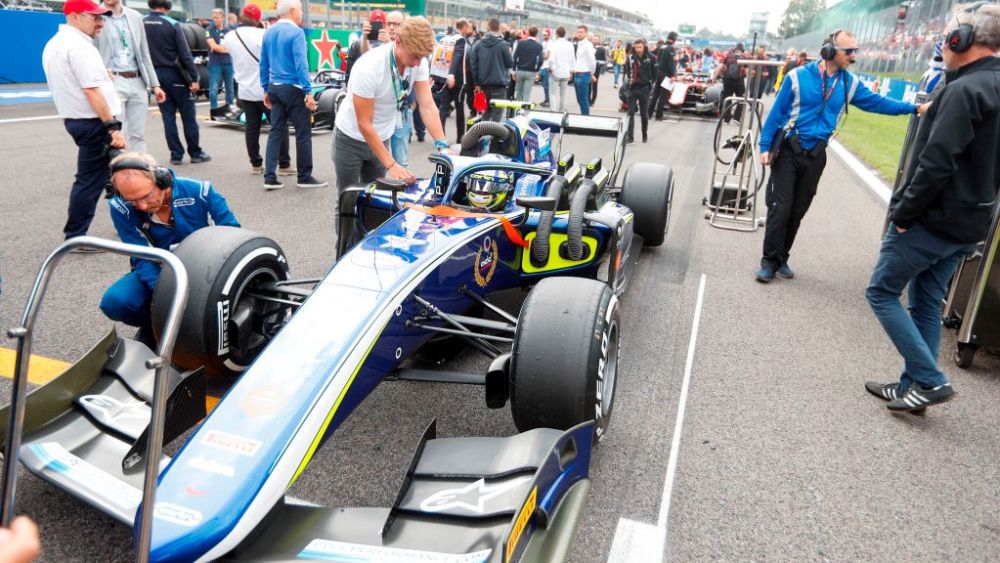
King had previously worked with Daruvala at Carlin in European Formula 3 and so when the Indian signed with the British team in F2, his manager requested King be his engineer.
The bond that they had built over time is, in part, what allowed for King’s infamous remark over team radio, which has since been hilariously recreated by the duo at the factory.
“It is only the media-worthy clips that get broadcast” he recalls. “From my clip in 2020, what wasn't broadcasted was the four or five bits of conversation that had already gone on. I stand by what I said because, at that point, he just needed to snap back and focus on what was important. When Jehan got back to the garage, there was no problem, we were fine. It is one of those things.
Sometimes, you need to give them a shout, sometimes you need to give them a cuddle. It’s all about working out what needs to be done at that time.
“Sometimes, you need to give them a shout, sometimes you need to give them a cuddle. It’s all about working out what needs to be done at that time. That weekend was also the fifth weekend we’d worked out of six or something along those lines, so with the long hours, we’ve only gotten a certain breaking point, just like anybody else. We had driven to Hungary and Austria and tempers can be short when you’re that tired.”
Those moments are few and far between and it’s the trust between an engineer and a driver that means conversations can become heated without spilling over.
READ MORE: Mastering one-lap pace will be key to Lawson mounting a title charge with Carlin

Emotion plays a big part in the job in general. King shares deeply in each of the highs and lows, the good results and the bad ones.
“When we lose, normally the drivers console me first,” laughs King. “I am as competitive as they are. Everyone is in a bad mood for the first half an hour after a bad race, but once you’ve left it for a bit you start cracking on again.
“You work out what went wrong, and you focus on the next one. But no, I am not very good at losing. It is as hard on me as it is on them, to be honest. It's often them saying 'come on mate, let's get on with the next one!’
“Then seeing them on the podium is probably the most joyful part, but the whole process is enjoyable. From preparing the cars to developing our own software tools to make us more efficient and to make the car faster. When it all comes together and you get a result, that is really satisfying.”